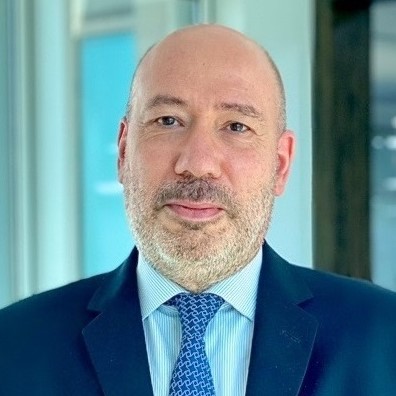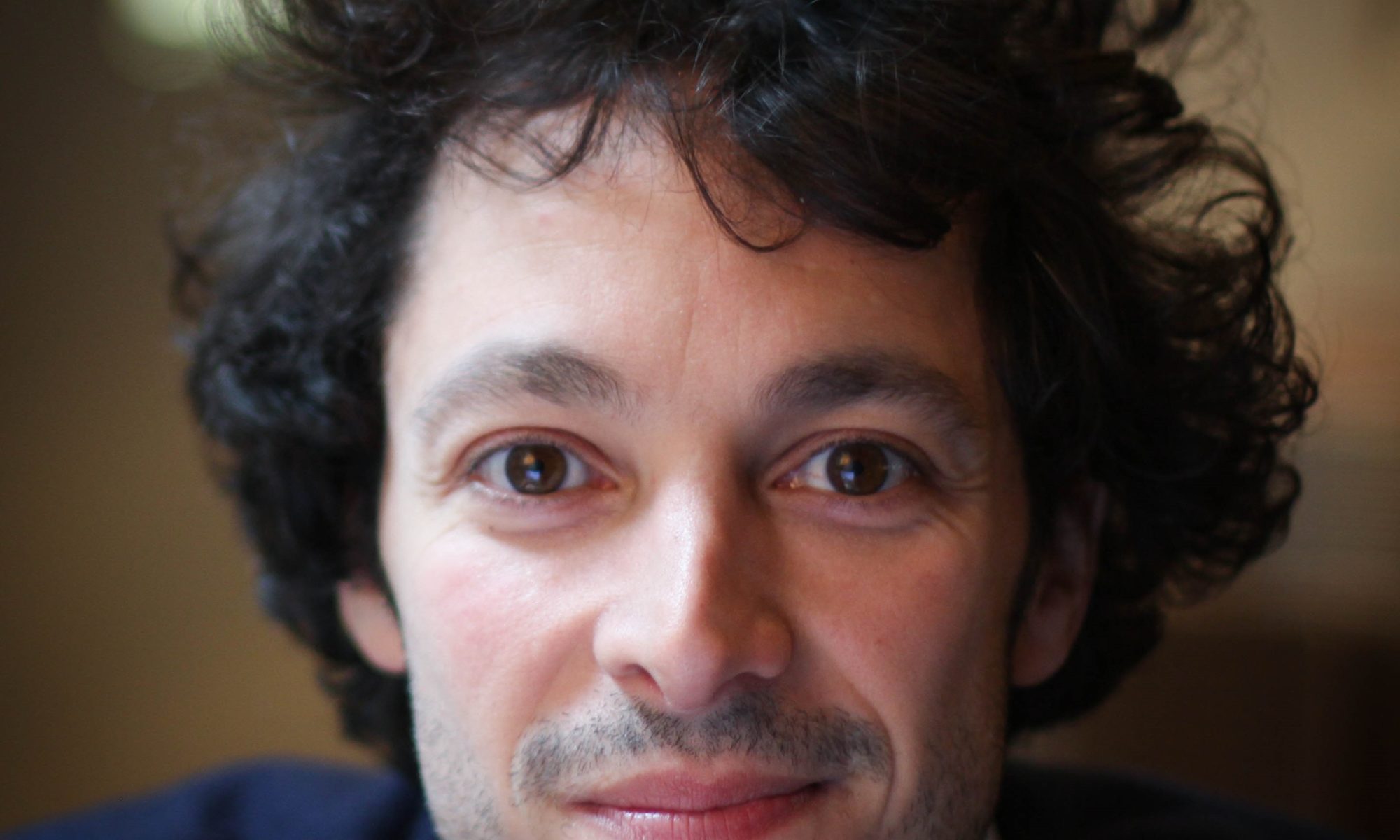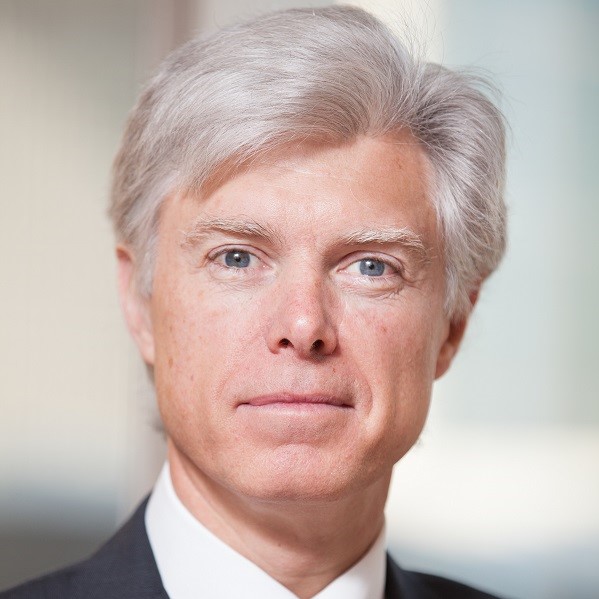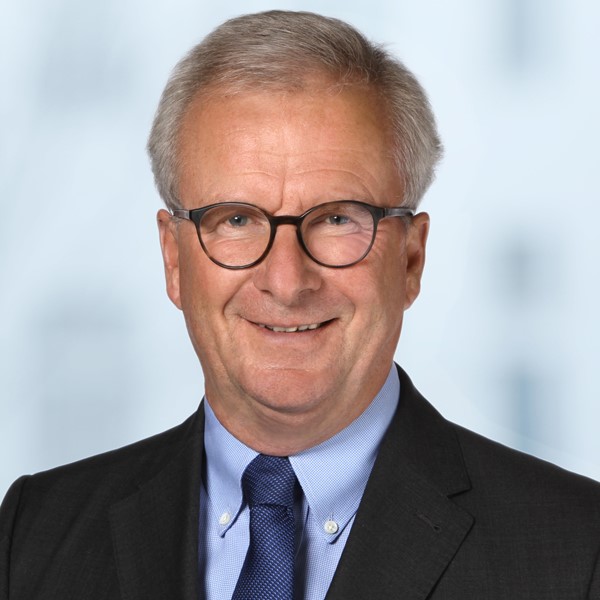Chroniqueur pour Nikkei. Il écrit régulièrement des commentaires et des chroniques, des analyses portant principalement sur les affaires étrangères et la sécurité internationale. Il a rejoint Nikkei en 1987 et a travaillé au département des informations politiques, où il a couvert les politiques étrangères et de sécurité du Japon, ainsi que la politique intérieure. Il a été rédacteur principal et rédacteur en chef, et a également travaillé au sein de la « Leader Writing Team » du Financial Times à Londres entre octobre et décembre 2017. Auparavant, il a été correspondant à Pékin et correspondant principal à Washington. À Pékin, il a couvert des événements majeurs tels que la mort de Deng Xiaoping et la rétrocession de Hong Kong à la Chine. À Washington DC, il a couvert la Maison Blanche, le Pentagone et le Département d’État pendant l’administration Bush.
Dritan Tola
Ambassadeur d’Albanie en France, et non résident à Monaco et au Portugal, représentant à l’Organisation internationale de la Francophonie. Il a longtemps travaillé à l’Union européenne, notamment à la Commission européenne et au Service européen pour l’Action extérieure, où il a été en charge des questions politiques et des développements européens et régionaux. Il a présidé le Comité ad hoc sur les Adhésions et les Modifications de statut de la Francophonie et est membre fondateur du Groupe des ambassadeurs francophones de France dont il a été élu vice-président à trois reprises. Il a été président ou membre de comités directeurs de divers organismes et programmes internationaux dans le domaine du développement et de la démocratisation.
Isabelle Tsakok
Isabelle Tsakok, praticienne du développement, analyste des politiques, chercheuse et enseignante, est Senior Fellow au Policy Center for the New South. Elle a grandi en République de Maurice, une société multilingue, multiethnique et multiculturelle. Elle est titulaire d’un doctorat en économie de l’Université de Harvard et d’un Bachelor of Arts en philosophie/économie de la London School of Economics. En tant que membre et consultante de la Banque mondiale, elle s’est concentrée sur le développement agricole et rural, y compris sur les questions de transformation agricole, de sécurité alimentaire et de réduction de la pauvreté. Elle a travaillé dans la plupart des régions du monde en développement, notamment en Afrique – nord et sud du Sahara ; en Asie – sud, sud-est et est ; et en Amérique latine. Elle a donné des cours sur les politiques et les institutions agricoles à la Banque mondiale ; à l’École du département agricole et rural de l’Université Renmin de Chine; à la School of International and Public Affairs (SIPA) de la Columbia University et à l’Université Polytechnique Mohamed VI au Maroc. Ses publications portent sur des questions de méthodologie d’analyse d’équilibre partiel pour évaluer les politiques agricoles et les distorsions, et de transformation agricole d’une agriculture de subsistance à petite échelle en une agriculture commerciale axée sur la demande. Son dernier livre est Success in Agricultural Transformation: What it Means and What Makes it Happen (Cambridge Univ. Press, 2011).
Mina Al-Oraibi
Rédactrice en chef du journal The National, un quotidien régional de langue anglaise basé à Abu Dhabi. Journaliste irako-britannique, Mina a plus de 18 ans d’expérience dans la couverture des affaires du Moyen-Orient, de l’Europe et des États-Unis. Elle a réalisé de nombreuses interviews de haut niveau, notamment avec le Premier ministre irakien Mustafa AlKadhimi, le secrétaire d’État américain Mike Pompeo, l’ancien président de la Banque mondiale Jim Yong Kim et l’ancien Premier ministre britannique Tony Blair. Auparavant, elle a été Senior Fellow à l’Institute for State Effectiveness (ISE) et World Fellow à Yale.
Mariam Al Mheiri
Ministre du changement climatique et de l’environnement des Émirats arabes unis. À ce titre, elle dirige la mission du ministère, qui consiste à mener les efforts des EAU pour atténuer les effets du changement climatique et s’y adapter, protéger les écosystèmes du pays et renforcer la sécurité alimentaire et hydrique en élaborant et en mettant en œuvre des mesures, des politiques et des initiatives efficaces. Avant d’occuper son poste actuel, Son Excellence Mariam Almheiri a été nommée ministre d’État à la sécurité alimentaire et hydrique. Ses responsabilités comprenaient la surveillance des stocks alimentaires nationaux et de l’approvisionnement en eau, la canalisation des investissements dans l’innovation technologique en matière d’alimentation et d’eau, et l’établissement de partenariats internationaux dans ce domaine. Auparavant, Son Excellence Mariam Almheiri occupait le poste de ministre d’État à la sécurité alimentaire, où elle supervisait le développement de l’infrastructure nécessaire pour atteindre les objectifs de sécurité alimentaire du pays, conformément au Centenaire des Émirats arabes unis 2071.
Peter Handley
Fonctionnaire européen, chef de l’unité Industries à forte intensité énergétique et matières premières auprès de la Direction générale du marché intérieur, industrie, entrepreneuriat et PME de la Commission européenne. Auparavant, responsable de la coordination des politiques pour l’Union de l’énergie, le paquet climat et énergie 2030, la stratégie de mobilité à faibles émissions et l’économie circulaire au Secrétariat général. Ancien négociateur commercial de l’UE (acier, accès au marché de l’OMC et tarifs industriels). Ancien fonctionnaire du gouvernement britannique, il a coordonné les préparations du Royaume-Uni pour la Conférence des Nations Unies sur l’environnement et le développement (CNUED) de 1992. Diplômé en français et sciences politiques de l’Université de Bristol. Il a aussi étudié à l’École nationale d’administration (ENA).
Matthieu Etourneau
Cofondateur et PDG de Royal Technologies Ltd., une entreprise insurtech basée à Dubaï qui entend redéfinir le secteur de l’assurance au Moyen-Orient. Il est également le représentant aux Émirats arabes unis de MEDEF International, la fédération française des entreprises. Auparavant, il était le directeur général pour le Moyen-Orient de la compagnie d’assurance française Siaci Saint-Honoré. Il a également occupé divers postes dans le secteur privé et l’administration publique : directeur général du Centre français des affaires de Téhéran, une boutique d’intelligence économique conseillant les entreprises françaises sur les questions liées à l’Iran, responsable du Moyen-Orient au MEDEF et attaché économique à l’ambassade de France en Guinée équatoriale. À compter du 1er janvier 2023, il intègrera l’Institut national du service public (INSP) comme élève fonctionnaire. Il est diplômé de Sciences Po Bordeaux et de la London School of Economics and Political Science.
Karen Andries
Directrice Déléguée Affaires internationales, Direction Affaires publiques, TotalEnergies. Karen Andries a rejoint la Direction des Affaires publiques de TotalEnergies en septembre 2019. De 2015 à 2019 elle était directrice déléguée du développement des affaires au Moyen-Orient, en Asie et en Afrique Nord au sein du Raffinage & Pétrochimie de TotalEnergies. Karen Andries a rejoint la direction Marketing & Services de PetroFina en 1997 à Bruxelles. Par la suite, elle a occupé plusieurs postes dans les directions Gas, Renewables & Power et Exploration & Production de TotalEnergies et dans différents pays, tels que l’Angola et l’Indonésie. Karen Andries est diplômée de l’Université Catholique de Louvain (Katholieke Universiteit Leuven) et titulaire d’un master d’ingénieure de gestion.
Pierre Monteiller
Chef du service risques à la Direction régionale à l’environnement de la région Provence-Alpes-Côte d’Azur. Ses activités impliquent le contrôle des installations industrielles ainsi que la gestion des risques naturels. Avant d’être haut-fonctionnaire, il a travaillé pour le fonds d’investissement Meridiam, le laboratoire pharmaceutique Guerbet et le cabinet marketing M13h. Il est ingénieur du Corps des mines et diplômé l’École normale supérieure de Paris en mathématiques.
David A. Sulzberger
Internationally known Art Dealer, specializing in Islamic Art. Since its establishment in 1975, his London-based company, Ahuan Islamic Art, has organized major Islamic exhibitions. ‘The Unity of Islamic Art’ exhibition inaugurated the Islamic galleries of the King Faisal Foundation in Riyadh in 1985. Ahuan has supplied important Islamic works of art to numerous private collections, including the outstanding collection of the late Sheikh Nasser Sabah al-Sabah and Sheikha Hussa al-Sabah in Kuwait. Ahuan has also provided important works of Islamic art to many major international museum collections, including the British Museum, the Louvre in Paris, the Museum of Islamic Art at the Pergamon Museum, Berlin, the C.L. David Collection, Copenhagen, the Adler Planetarium in Chicago, as well as notable museum collections in Islamic countries, such as the Dar al-Athar al-Islamiyyah, Kuwait, the Louvre Abu Dhabi, and the Museum of Islamic Art in Doha. David Sulzberger was for three years an advisor to the ArRiyadh Development Authority (ADA) planning the Saudi Arabian National Museum in Riyadh. He continues to work closely with both private collectors and government agencies in the Arab and Islamic World.
Arnaud Robin
Chargé d’accélération au sein de la direction interministérielle du numérique. Il accompagne les startups d’État à augmenter leur impact et à passer à l’échelle. Avant de rejoindre les services de la première ministre, il a notamment eu l’opportunité de travailler pour Google, le groupe SNCF et le géant du e-commerce Wayfair. Ingénieur des mines, il est aussi diplômé de l’école polytechnique et du Massachusetts Institute of Technology.
Kazuto Suzuki
Professeur à l’École supérieure de politique publique de l’université de Tokyo et directeur de l’Institut de géoéconomie de la Maison internationale du Japon. Il est diplômé du département des relations internationales de l’université Ritsumeikan et a obtenu un doctorat à l’Institut européen du Sussex. Il a travaillé à la Fondation pour la recherche stratégique à Paris en tant qu’assistant de recherche. Il a également été professeur associé à l’université de Tsukuba de 2000 à 2008 et a été professeur de politique internationale à l’université d’Hokkaido jusqu’en 2020. Il a été membre du groupe d’experts du Comité des sanctions contre l’Iran du Conseil de sécurité des Nations unies de 2013 à 2015. Il siège actuellement dans de nombreux comités consultatifs du gouvernement japonais, notamment le Comité national de la politique spatiale du Bureau du Cabinet, le gouvernement du Japon, et il est le président de l’Association japonaise pour la sécurité et le commerce internationaux. Ses recherches portent sur la conjonction de la science/technologie et des relations internationales, sur des sujets tels que la sécurité économique, la politique spatiale, les sanctions, la non-prolifération et le contrôle des exportations. Ses travaux récents comprennent Space and International Politics (2011), Policy Logics and Institutions of European Space Collaboration (2003), Economic security and technological advantage (2023) en japonais, et bien d’autres encore.
Roula Elia
Avocate, PDG de la fondation Echo for Peace et de Rased Lebanon (coalition de plusieurs ONG), membre de l’association du barreau de Beyrouth et Observateur électoral international. Elle est fondatrice et membre de nombreuses ONG et associations à but non lucratif. Elle est consultante juridique pour de nombreuses associations et organisations civiques. Journaliste à Tele Lumiere et Noursat International, elle gère des programmes traitant de questions sociales, politiques et religieuses par le biais de talk-shows. Elle a mené des interviews en direct de personnalités connues afin de trouver des solutions aux problèmes nationaux. Elle est avocate et consultante juridique auprès de nombreuses associations et organisations civiques. Elle a été déléguée en tant qu’avocate et journaliste pour assister aux audiences du Tribunal spécial pour le Liban à La Haye, aux Pays-Bas (STL). Elle a participé à plusieurs conférences et séminaires au Liban et à l’étranger : Politique, Justice, Paix, Religion, Dialogue interconfessionnel, Mondialisation, État civil, etc. Elle est rédactrice juridique et sociale pour de nombreux journaux et revues. Elle est titulaire d’un JD en droit pénal de l’Université du Liban.
Basile Cotte
Haut fonctionnaire français, Basile Cotte travaille actuellement à la Commission Européenne, au sein de la DG COMP, et plus particulièrement dans le contrôle des concentrations relatives aux industries de base, dans le secteur manufacturier et agricole. Ingénieur diplômé du parcours « Mathématiques Appliquées » de l’École Polytechnique, il est également diplômé du master Analyse des Politiques Économiques de la Paris School of Economics et a effectué la formation du Corps des Mines, qu’il rejoint en 2020. Au cours de sa formation, il a eu l’opportunité de travailler pour la banque Morgan Stanley à Londres avant de rejoindre Neoen à Paris, un développeur indépendant d’énergies renouvelables. Son parcours s’est également enrichi d’une importante expérience de régulateur, car il a eu l’opportunité de travailler pour Euronext, la plus importante place boursière en Europe, ainsi que pour la DGCCRF (Direction Générale de la Concurrence, de la Consommation et de la Répression des Fraudes) au sein de la régulation du numérique et des télécoms.
Íñigo Fernández de Mesa
Íñigo Fernández de Mesa est président de Rothschild & Co Espagne. Il a rejoint Rothschild & Co en 2017 après avoir été Secrétaire d’État à l’Économie au sein du gouvernement espagnol. Auparavant, il a été responsable du secteur public et des infrastructures de Lehman Brothers entre 2007 et 2008, et directeur général de Barclays entre 2008 et 2011. Il est vice-président de la Confédération espagnole des organisations d’entreprises (CEOE), président de la Commission de l’économie et de la politique financière de la CEOE, et président de l’IEE (Institut d’études économiques). Il est un membre indépendant du conseil d’administration de Scottish Power ainsi qu’un membre du comité consultatif international d’Altamar. Il est expert commercial accrédité par le gouvernement et économiste du patrimoine depuis 1992. M. Fernandez de Mesa est titulaire d’une licence en économie de l’Universidad Complutense de Madrid.
Elias Kassis
Elias Kassis est directeur général de Total E&P UAE et TotalEnergies Country Chair aux Émirats arabes unis depuis mai 2021. Précédemment, il occupait le poste de vice-président Transition Energétique dans la division Moyen-Orient Afrique du Nord (MENA) de TotalEnergies Exploration & Production. Entre 2015 et 2020, il a assuré la fonction de vice-président Afrique du Nord dans la division MENA et a été directeur général des filiales E&P de TotalEnergies au Yémen, en Malaisie et en Irak entre 2011 et 2015. Antérieurement, il était vice-président de la division TotalEnergies E&P Moyen-Orient et vice-président Venezuela de la division TotalEnergies E&P Amériques. Il a également exercé d’autres responsabilités managériales au Venezuela et au Qatar. Il a débuté sa carrière chez TotalEnergies en 1991, occupant différents postes dans les divisions Trading et Gas & Power jusqu’en 2002. M. Kassis est ingénieur diplômé de l’Institut national Polytechnique de Grenoble et titulaire d’un Master en Finance de l’ESSEC Business School.
Sung-Woo Kim
Le Dr. Kim est président-directeur général de MiCo BioMed Co. Ltd, une société coréenne de diagnostic innovante basée sur la technologie LabChip, qui fabrique divers produits de diagnostic biochimique, immunologique et moléculaire, notamment des kits et des systèmes de détection du COVID-19. Il a fondé NanoBioSys Inc. en 2009 et a inventé un système de diagnostic moléculaire portable permettant de détecter rapidement plusieurs agents pathogènes de maladies infectieuses à l’aide d’une puce microfluidique en plastique jetable et peu coûteuse (LabChip). Il travaille avec des organisations internationales telles que l’ONU, l’OMS et l’Institut Pasteur. Il dirige actuellement ses équipes dans le développement d’un système de télédiagnostic plus efficace, portable et facile à utiliser pour la détection rapide, la surveillance et le contrôle des maladies animales/alimentaires ainsi que des maladies humaines sur place. Ses collègues et lui s’orientent vers un système innovant de soins de santé en ligne afin de fournir un environnement plus sain pour le monde. Il a obtenu un doctorat en sciences biologiques à l’université de Columbia en 1995 et a travaillé pour la Harvard Medical School en tant que professeur de recherche pendant 13 ans.
Pierre Jacquet
Professeur d’économie internationale à l’École nationale des ponts et chaussées (ENPC) et membre du Cercle des économistes. Entre 2012 et 2022, il a dirigé le Global Development Network (GDN), une organisation publique internationale dont le siège est à New Delhi (Inde) et dont la mission est de renforcer les capacités de recherche en économie et en sciences sociales dans les pays en développement. Il était auparavant chef économiste (2002-2012) de l’Agence française de développement (AFD), directeur exécutif de l’AFD en charge de la stratégie (2002-2010), et, avant 2002, directeur-adjoint de l’Ifri et rédacteur en chef de la revue trimestrielle Politique étrangère. Il a été, de 1994 à 2012, professeur d’économie internationale et président du département d’économie, gestion et finance à l’ENPC. Il est président du conseil scientifique de la fondation FARM, membre du Comité scientifique de Crédit Agricole SA et Non-Resident Fellow du Center for Global Development (Washington D.C.).
Eponine Loridant
Ingénieure-élève du Corps des Mines, Eponine Loridant a étudié au Lycée franco-allemand et à l’Ecole Polytechnique. Dans le cadre de ses études, elle a travaillé pour une organisation humanitaire en Côte d’Ivoire et à l’ambassade de France en Suisse.
David Wurmser
David Wurmser est Senior Fellow et directeur du projet sur l’antisémitisme mondial et la relation USA-Israël au Centre de politique de sécurité, ainsi que Senior Fellow au Kohelet Policy Forum. Il est également le dirigeant et membre fondateur du Delphi Global Analysis Group, LLC – un cabinet spécialisé dans l’analyse et l’atténuation des risques géopolitiques pour les entreprises d’hydrocarbures, d’infrastructures, de haute technologie, de défense et de finance des États-Unis, du Japon et de l’Inde naviguant en Israël et au Moyen-Orient – depuis sa fondation en 2007. De décembre 2018 à septembre 2019, M. Wurmser a également occupé le poste de conseiller principal (employé spécial du gouvernement) auprès du conseiller à la sécurité nationale des États-Unis, l’ambassadeur John Bolton.
Manon Nguyen Van Mai
Manon Nguyen Van Mai est ingénieure élève au Corps des mines. Diplômée du parcours « Sciences pour les défis de l’environnement » de l’École Polytechnique, elle est actuellement en formation pour devenir haut fonctionnaire. Elle a effectué six mois de service militaire sur une frégate de surveillance dans les Terres australes et antarctiques françaises. Au cours de ses études, elle a travaillé pour la start-up biotech Embleema ainsi que pour les groupes industriels Butagaz et EDF.
Ingvil Smines Tybring-Gjedde
Administratrice non exécutive de Norge Mining. En cette qualité, Ingvil Tybring-Gjedde fait bénéficier le conseil d’administration de Norge Mining de sa grande expérience. Représentante du Parti du progrès norvégien (FrP) et ancienne ministre adjointe au ministère norvégien du Pétrole et de l’Énergie, elle saura guider le pays dans ses prochaines étapes économiques qui s’annoncent passionnantes. Ingvil Tybring-Gjedde a également été ministre de la Sécurité publique au sein du ministère de la Justice et de la Sécurité publique de janvier 2019 à janvier 2020. Précédemment, elle a travaillé en tant que conseillère principale au ministère norvégien des Affaires étrangères, et a occupé des postes dirigeants dans les secteurs du pétrole et du gaz chez Innovation Norway. Comités du conseil d’administration : rémunération (membre) et ESG (présidente).
Mehdi Benchoufi
Co-fondateur d’echOpen, un échographe portable, bas-coût, connecté au smartphone, il est médecin de santé publique à l’hôpital Hôtel-Dieu, ancien chef de clinique en épidémiologie clinique et docteur en mathématiques. Il s’est principalement investi aux interfaces entre médecine connectée et technologies ouvertes : imagerie par ultra-sons, méthodologie de développement des solutions d’intelligence artificielle. Il a été pionnier dans les applications de la blockchain pour la qualité des essais cliniques.
John Vergopoulos
Président-directeur général de Norge Mining. John Vergopoulos apporte à Norge Mining un leadership décisif et concret, ainsi qu’un « livre noir » financier international et des années d’expérience dans le secteur des ressources minérales. Il possède de solides compétences en matière de collecte de fonds sur les marchés des capitaux, des capitaux privés et des prêts consortiaux. Il a été membre du conseil d’administration d’une PME et président-directeur général et directeur financier de plusieurs sociétés cotées en bourse dans les industries de la technologie et des ressources minérales. Au fil des ans, John Vergopoulos a été chargé de traiter avec des institutions gouvernementales en Europe, en Afrique et en Asie. Il a commencé sa carrière en tant qu’expert-comptable dans le département d’audit de Deloitte à Londres.
Arnaud Breuillac
Conseiller principal du Président-directeur général de Total Energies.
Arnaud Breuillac, 63 ans, est diplômé de l’Ecole Centrale de Lyon en 1981. Il a rejoint TotalEnergies en 1982 et a occupé différents postes au sein de la division Exploration & Production, notamment à Abu Dhabi, au Royaume-Uni, en Indonésie et en Angola, ainsi qu’au sein de la division Raffinage en France. De 2004 à 2006, il a occupé le poste de vice-président, Moyen-Orient – Iran. En décembre 2006, il est nommé au Comité de direction de la division Exploration & Production, en même temps qu’un nouveau rôle de Senior Vice-President, Europe continentale et Asie centrale. En juillet 2010, il est nommé Président de la division Exploration & Production, Moyen-Orient et en janvier 2011, il devient membre du Comité de direction du Groupe. En 2014, Arnaud Breuillac est devenu membre du Comité exécutif de Total et directeur général de l’Exploration & Production, responsable du très vaste portefeuille amont de la société, de plus en plus diversifié, dans le monde entier. Depuis le 1er septembre 2021, Arnaud Breuillac est nommé Senior Advisor auprès du Président-directeur général de TotalEnergies SE.
Ahmed bin Hilal Al Busaidi
Ambassadeur du Sultanat d’Oman aux Emirats Arabes Unis. Auparavant, il a été Ambassadeur du Sultanat d’Oman auprès du Royaume d’Arabie Saoudite, Ambassadeur non-résident en République de Djibouti et Représentant permanent du Sultanat d’Oman auprès de l’Organisation de la coopération islamique. Son Excellence le Dr. Al Busaidi commence sa carrière de diplomate en 1983 comme Second secrétaire au sein du département européen du Ministère des Affaires étrangères de Mascate, puis comme Premier secrétaire à l’Ambassade d’Oman au Caire. En 1988, il réintègre le Ministère des affaires étrangères de Mascate au poste de Directeur du Bureau des affaires politiques et économiques du Conseil de coopération du Golfe, avant d’être promu Directeur du bureau du Moyen-Orient et de l’Iran en 2000. Il devient en 2004 Chef adjoint du Département arabe pour les affaires du Conseil de coopération du Golfe. S.E. Dr. Ahmed bin Hilal Al Busaidi possède un un Master en développement économique et commerce international de l’Université de Reading au Royaume-Uni, et est titulaire d’un doctorat en économie de l’Université de Hull au Royaume-Uni.
Michael Wurmser
Économiste et entrepreneur chevronné, Michael Wurmser donnera des conseils sur les finances et l’orientation stratégique de Norge Mining. Il a travaillé pour la Citibank de Zurich et a occupé un éventail prestigieux de postes à hautes responsabilités dans des institutions financières multinationales à New York et à Francfort. Par le passé, il a été mandaté par divers gouvernements, ministères des Finances et banques d’État pour aider à régler des dettes souveraines. Au fil des années, Michael Wurmser a conseillé des entreprises des secteurs des ressources naturelles, des matières premières et de l’exploitation minière en Russie, au Moyen-Orient et en Mongolie sur le financement structuré.
Holger Bingmann
Associé gérant, Bingmann Pflüger International. Le Dr Holger Bingmann est né le 8 juillet 1961 à Stuttgart (Allemagne). Pendant de nombreuses années, il a occupé des postes de direction dans l’industrie et le domaine associatif. Depuis mai 2020, Holger Bingmann est associé directeur de Bingmann Pflüger International. Il est également président de la Chambre de commerce allemande à Paris, membre du conseil d’administration de la KfW (Francfort/Berlin) et membre du comité exécutif, entre autres, de l’association fédérale allemande du commerce de gros, du commerce extérieur et des services (BGA), de l’association allemande des employeurs (BDA) et de l’association allemande du commerce électronique. Holger Bingmann est actionnaire de Pressevertrieb München Holding, membre du conseil consultatif de plusieurs grossistes en presse et fondateur et propriétaire de la Digital Business University, à Berlin. Il est également membre du conseil consultatif, entre autres, de la Commerzbank (Francfort), de l’association autrichienne de logistique (WKÖ) et d’autres associations nationales et internationales. M. Bingmann est associé de GLB German Latin Business GmbH et d’iconomy GmbH (Berlin).
Kristian Bader
Directeur des opérations, Norge Mining. Kristian Bader possède une vaste expérience en tant que conseiller en exploitation, qu’il a acquise pour la plupart en tant que responsable hiérarchique et chef de projet dans des entreprises des secteurs financier et technologique. Kristian a en outre fondé et développé plusieurs entreprises. Ses points forts sont l’analyse, la conception et la mise en œuvre de structures et de processus organisationnels ainsi que le développement stratégique de ceux-ci. Il est également passionné par les développements dans les domaines de la technologie, de la numérisation et de l’automatisation. Il est titulaire d’un doctorat en administration des affaires et d’un master exécutif en droit des affaires et en études du marché de l’art.
Alice Pannier
Alice Pannier est responsable du programme géopolitique des technologies, lancé à l’Ifri en octobre 2020. Ses recherches portent sur la dimension géopolitique des nouvelles technologies, les politiques technologiques européennes, et les relations transatlantiques. Elle a également longtemps travaillé sur la sécurité européenne et les politiques étrangères et de défense des pays européens, notamment la France et le Royaume-Uni. De 2017 à 2020, elle était professeure assistante en relations internationales et études européennes à la Paul H. Nitze School of Advanced International Studies (SAIS) de l’Université Johns Hopkins à Washington. Elle a également travaillé comme chercheuse post-doctorante à l’Institut de recherche stratégique de l’École militaire (IRSEM). Elle est diplômée du King’s College de Londres et de l’Université Panthéon-Sorbonne et titulaire d’un doctorat en science politique de l’IEP de Paris, en codirection avec le King’s College.






























